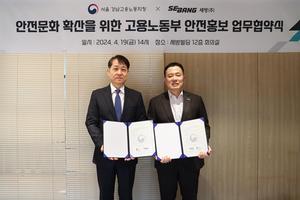 |
Clustered Regularly Interspaced Short Palindromic Repeats (CRISPR), which has revolutionized research in biomedical science, is a gene editing technique that involves precisely cutting a part of DNA and taking over it with natural DNA repair processes. It usually functions by targeting DNA using a Cas9 enzyme. This gene-editing method will pave the way for various biological innovations like never before in the future.
According to a new study published in Nature Biotechnology, Artificial Intelligence can predict the target activity of CRISPR tools that target RNA, not DNA. Researchers at New York University, Columbia Engineering, and the New York Genome Center invented TIGER. It is a deep-learning model that perfectly estimates the on- and off-target activity of RNA-targeting CRISPR tools, allowing precise tuning of gene activity in human cells.
TIGER will be a beneficial system to develop the design of CRISPR therapies by reducing off-target effects. Additionally, disorders brought on by the overexpression of specific genes may be treated using the RNA-targeting methodology, which may also provide new methods to fight viral infections.
New viruses and diseases will increase more and more due to climate change as the temperature gets warmer in the future. According to recent studies, climate change is expected to lead to thousands of new viruses spreading among animals by 2070, increasing the likelihood of new infectious diseases spreading from animals to humans. The diseases are called zoonotic diseases, and representative examples are HIV and AIDS. The Human Immunodeficiency Virus (HIV) was considered to have originated in chimpanzees and spread to humans, leading to Acquired Immunodeficiency Syndrome (AIDS).
In a world of accelerating scientific progress and evolving environmental challenges, the ability to harness cutting-edge technologies like TIGER, coupled with a proactive stance on climate change, will lead to success in averting future health crises.
이윤화 강남포스트 학생기자 webmaster@ignnews.kr
<저작권자 © 강남포스트, 무단 전재 및 재배포 금지>

 고용노동부 강남지청-세방(주), 안전문화 확산 위한 업무협약 체결
고용노동부 강남지청-세방(주), 안전문화 확산 위한 업무협약 체결


